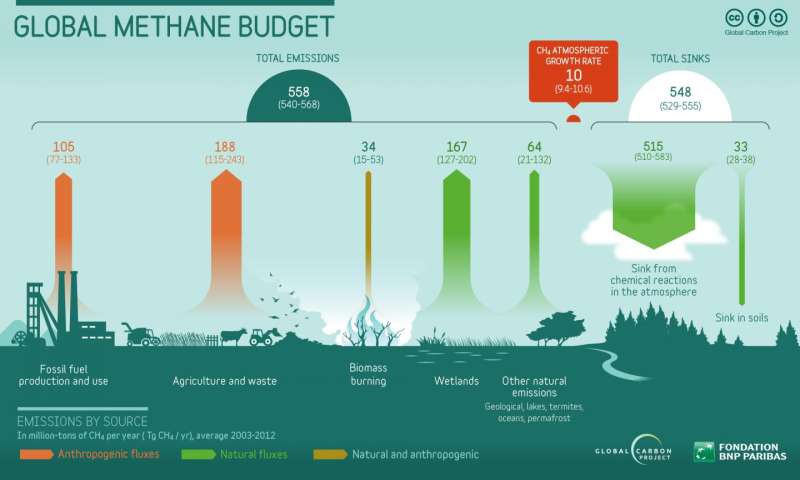Best of Last Week–Satnav goes live, surge in methane adding to climate change and cellular reprograming to reverse aging

(ScienceX)—It was a good week for space news as Europe's Galileo satnav system went live—commissioned by the European Space Agency and the EU Commission, the satellite is expected to be fully operational by 2022, offering time and positioning to Earthbound devices. A team studying data sent back to Earth from the Curiosity rover on Mars reported on a rock-ingredient stew that was seen as a plus for habitability as it climbed part of a layered Martian mountain. And a team studying data sent back from NASA's Dawn spacecraft wondered "where is the ice on Ceres?" They suggest it might reside in an ice-rich crustal layer on the largest body in the main asteroid belt.
In other news, a team at Harvard University announced that they had built the world's smallest radio receiver with building blocks the size of two atoms—and it can withstand extremely harsh environments. Also, an international team of scientists published an editorial pointing out that a surge in methane emissions is threatening efforts to slow climate change—they claim that concentrations of the gas are building up in the atmosphere faster than they have for two decades.
Also, a pair of researchers with the University of Arizona reported on their research looking into why we walk on our heels instead of our toes. And a team at the Australian National University announced that they had led an international effort that resulted in the creation of a new diamond that is harder than a jeweler's diamond, which they deemed useful for cutting through ultra-solid materials.
A team working at a University of Queensland lab confirmed a vitamin D link to autism traits—more specifically to deficiencies during pregnancy. And a team at Hong Kong University of Science and Technology described research in which a file compression format was found to alter the timbre of music, causing loss of some emotional context—music compressed into the MP3 format was found to lose some of its positive emotional impact.
And finally, if you are like most people and dread the impact that growing older has on your body, you might be interested in a study done by a group at the Salk Institute—they found that cellular reprogramming could reverse the signs of aging—at least in individual human cells and mice with an aging disease.
© 2016 ScienceX